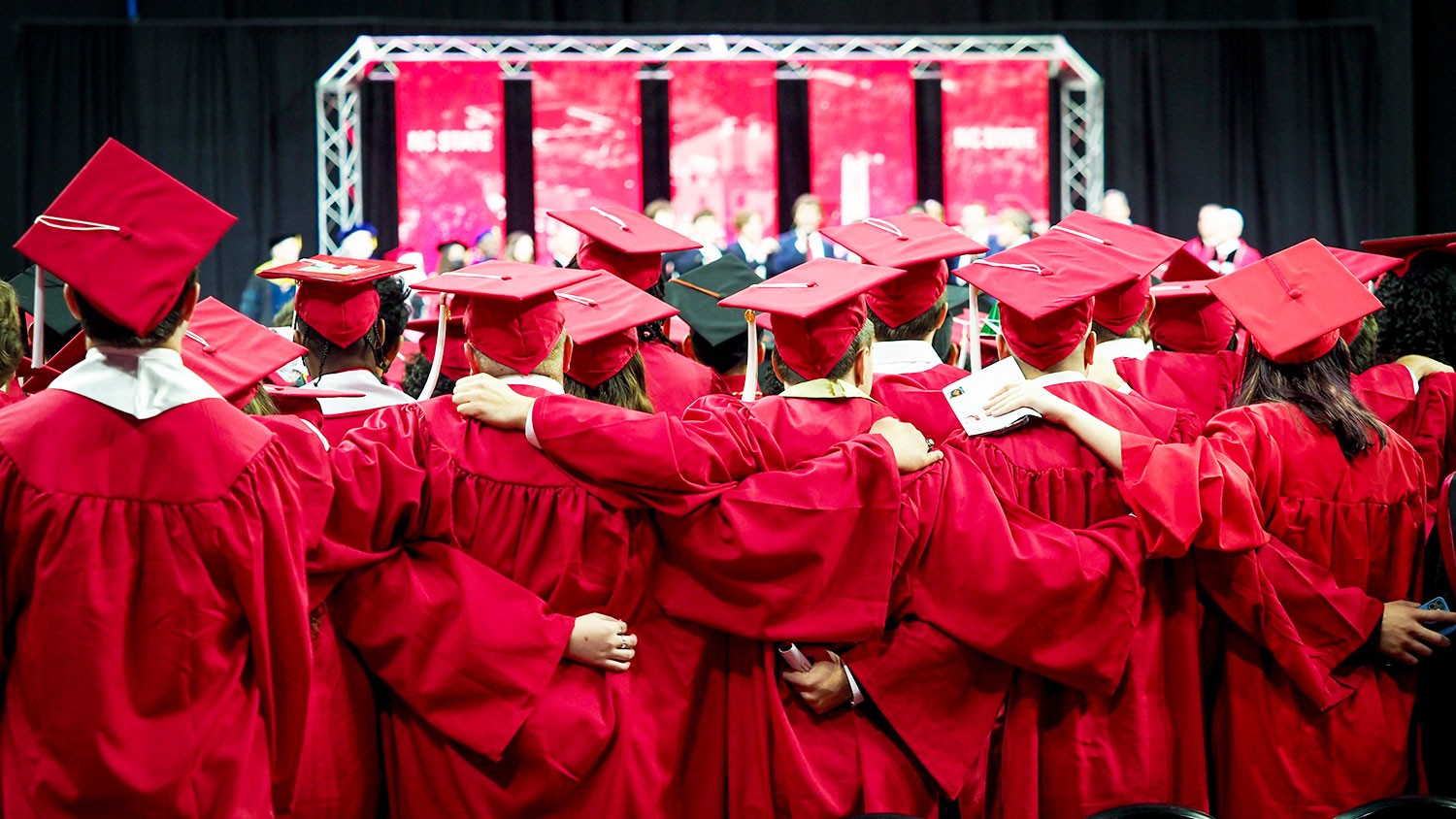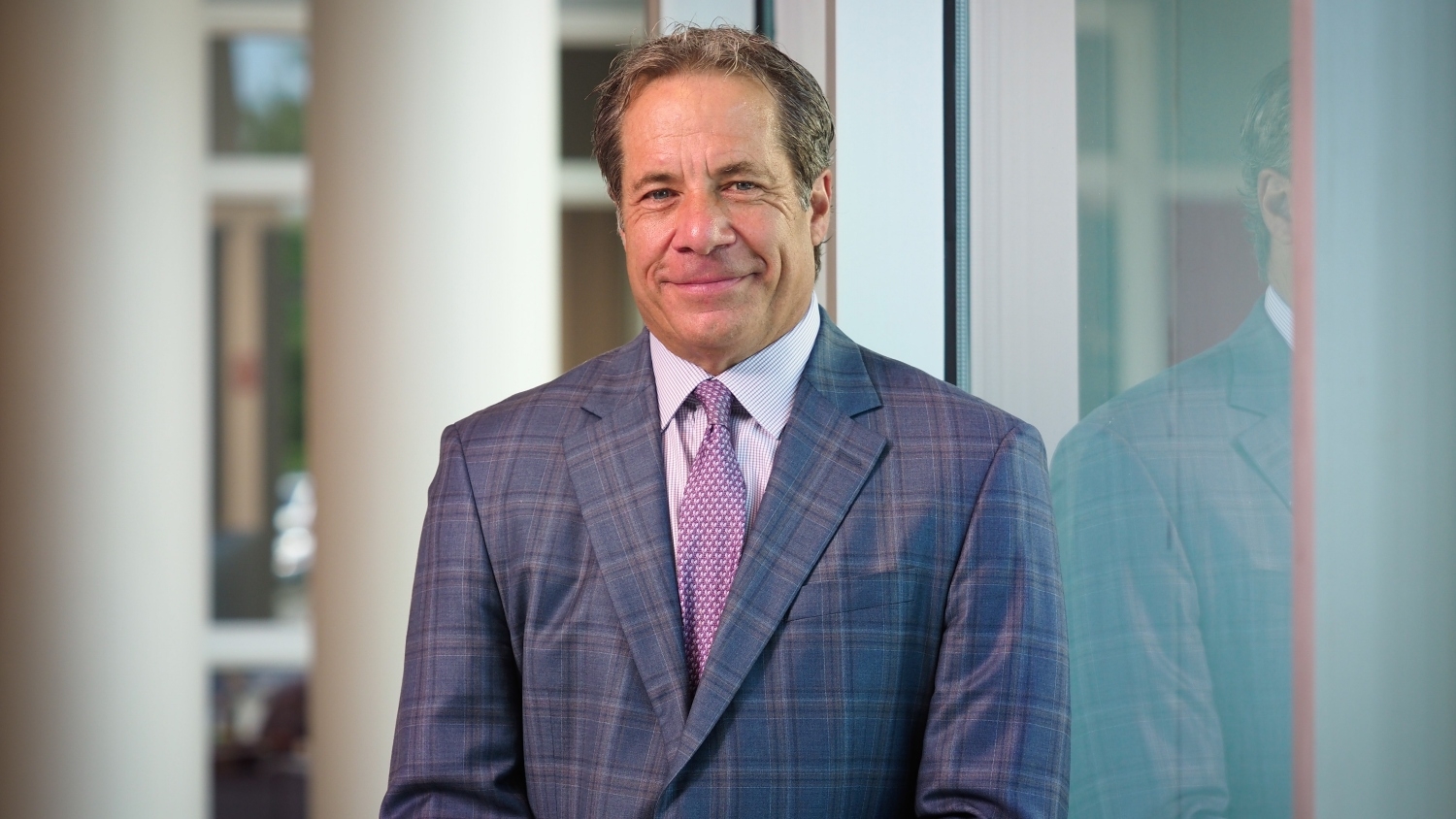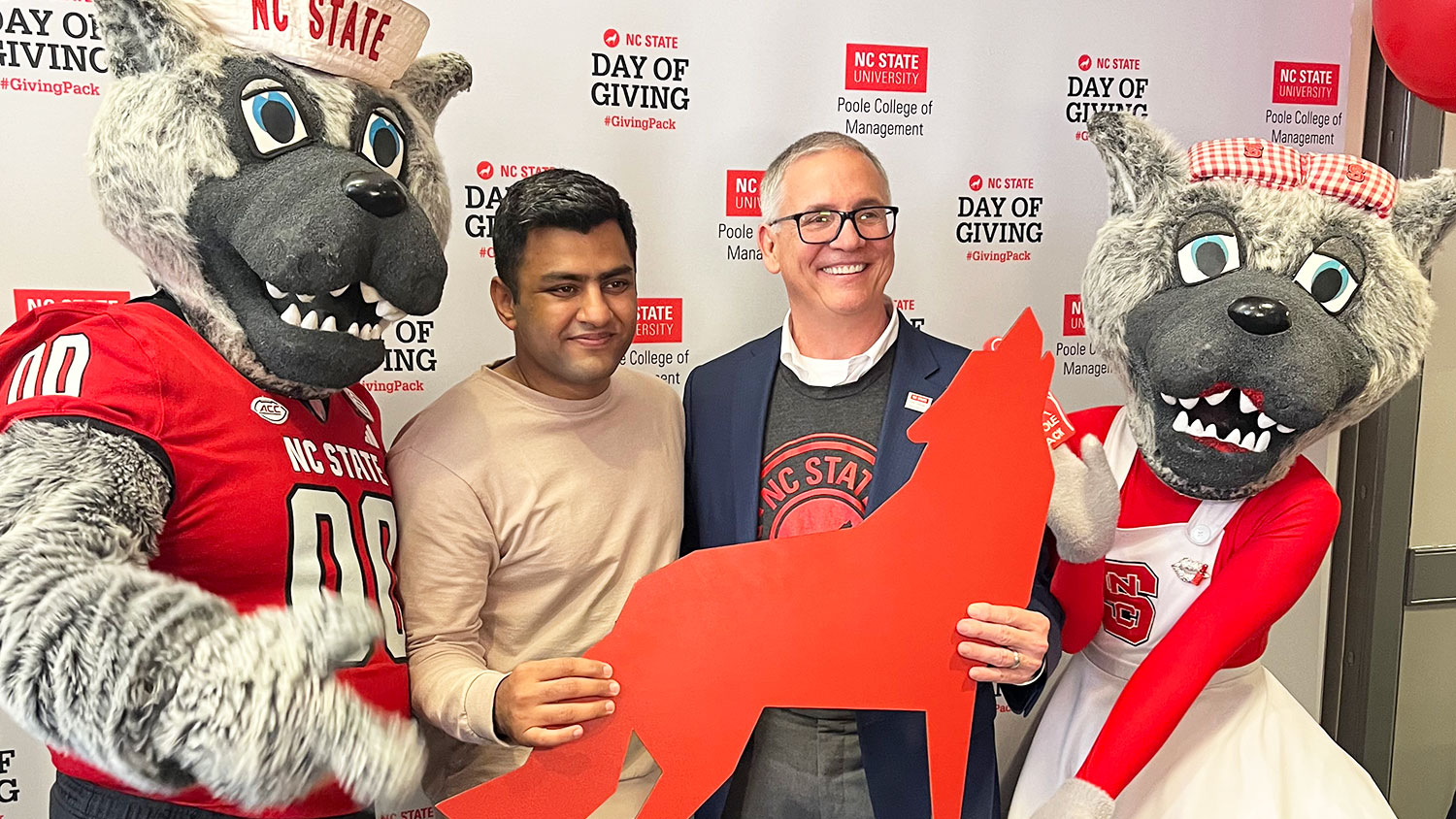HR Faculty Member Speaks about the Profession, Competition, Technology, Change
BACKGROUND
Clint Davidson came to the NC State College of Management after retiring from Duke University, where he served 13 years as corporate vice president of university and health systems human resources. Prior to that, Davidson spent a career in higher education and health care human resources administrative and leadership roles. He currently is sharing his real world experience with students in the NC State College of Management as a lecturer in the Department of Management, Innovation and Entrepreneurship.
QUESTION
Please share some of your perspective on the status of the Human Resource profession today.
DAVIDSON
As I think everyone knows, in part because of the tremendous economic turmoil we faced not only in this country but globally, organizations have been going through major adjustments around business processes, human resource practices – doing anything and everything they can to remain competitive, to respond to global pressures, and to hire, develop and retain the very best staff possible.
What we hear the most about in the news is how companies have cut back. But along side of that has been their efforts to assure that they have the right talent, the right skills, the right abilities to continue to provide high quality business.
Now along with all of this, organizations have been going through tremendous change and adjustment due in great part to technology changes over the last 10, 15, 20 years. That, too, translates into lots of human resource requirements. So what we find at this point in time – here we are in 2010 – is tremendous responsibility and pressure on the part of organizations to acquire and to assure that they’ve got the right talent, not only to serve today but to serve in the years ahead, to serve globally and to be constantly responsive to a changing market and changing demands on the organization. So people – maybe more so than at any point in recent history – have really become such a serious consideration in business planning and business execution.
QUESTION
Given NC State’s location in the Research Triangle Park and the region’s highly technology focused workforce, what unique things are we doing in the College of Management to prepare our students for the technology that is everywhere – not just the RTP?
DAVIDSON
To focus it rather sharply, what technology brings to organizations is this considerable additional capacity to innovate, to be entrepreneurial, to do things better, faster and more cost effectively. Technology is designed by, operated by, utilized by people. And so the HR professionals today and in the years to come have to be very expert in and committed to the use of technology.
And along with technology comes enormous change, change of products and services and methods of doing work. So HR professionals and management staff more generally [need to be ] prepared and capable of managing change and dealing with all of the change that comes from that. So, the professionalism that we’re developing in our students and the HR professionals that go out into business and industry still have the foundational pieces in HR and HR development. But they have to be able to [apply their knowledge and skills] in a constantly changing environment and business economy.
QUESTION
What unique skills/knowledge are needed to be able to do that effectively?
DAVIDSON
Well, one of the things that is true in our program here at NC State is the integration of the theory and the practice of human resources. And I think one of the aspects that we’ve built [into] our curriculum is that really is paying great dividends to our graduates is they understand the theories around organizational behavior, group dynamics, individual interaction, collaboration, teamwork, but they’re getting that exposure coupled with hands on application. If you look at any of the HR executives that we bring into the school to participate in group projects, to give feedback to our students, to help evaluate, to participate in internships so our students go out into business and industry and are working in an applied sense rather than just in the classroom and the theoretical sense. It’s really about helping our graduates at both the undergraduate and the graduate level be prepared to contribute at an earlier point. In years gone by, it may be that some folks had the acumen and had completed the courses but they didn’t have the hands on experience. So, what you’re seeing in our program is this integration of theory and practice so the people are prepared to begin contributing and helping the companies deal with the very formidable HR challenges at an earlier point.
QUESTION
So then that would definitely be one of the strengths of our program?
DAVIDSON
I think so. We have a combination of folks like myself, who come from business and industry and whose careers have been much more on the applied side, and then we have very accomplished and well educated academic leaders in human resources. And so we are able, both in the content of our curriculum and the pedagogy – the way we deliver programs – to bring both the theory and the application together.
QUESTION
This week we are preparing the host the HR Games. What value does participating in competitions like that provide the students?
DAVIDSON
Well, competition is certainly a major part of the business world more broadly and acquiring these skills and the knowledge of laws, and competencies and strategies in HR, and then being able to match wits and go shoulder to shoulder with your colleague students across the state brings out a real sense of competition. In one case it’s rather gratifying to see how much you’ve acquired. In another sense it’s rather humbling to see that ‘Gosh, even though I’ve had a great experience here at NC State and I’ve learned a lot, look how many other people across the state who are probably every bit as capable as I am and have acquired the knowledge as well.’
So I think getting into the spirit of competition, there will be a number of employers involved who will have a chance to see the knowledge base that the students have acquired. So, the interaction with employers and giving them a chance to see how capable and bright and diverse our students are – all of that is part of the value that comes out of the SHRM HR Games.
QUESTION
You spoke a little about executives and the corporate community coming into our classrooms. What role are they playing, what kinds of projects are they involved in?
DAVIDSON
One of the things that is true in almost all of our courses in the human resource curriculum are projects and case studies. And rather than just give a faculty evaluation, most of our faculty utilize panels of corporate executives or HR leaders to come in and hear the presentations, provide feedback to our students and develop relationships. In many cases, these corporate executives are seeing this talent and making judgments – maybe that’s someone I would like to have working in my organization.
But the really valued developmental part of that is these folks, these corporate executives, are involved in projects and cases like this in their organizations every day, and to give feedback, to receive feedback from a corporate VP of HR or a recruiting director … last week we had a global director of recruitment here who participated and her observations about recruiting and internal development were enormously valuable and impactful for our students to hear that from people who really are dealing with this on a day to day basis.
Dig Deeper
NC State College of Management to Host 2010 state collegiate HR Games on March 27
Bachelor’s in Business Administration (HR concentration) and Jenkins MBA


